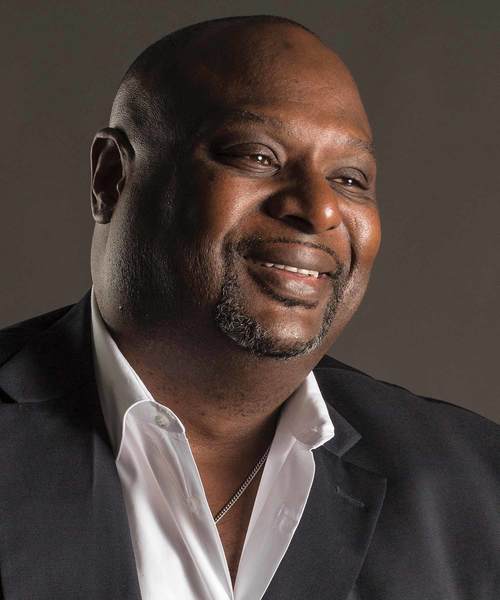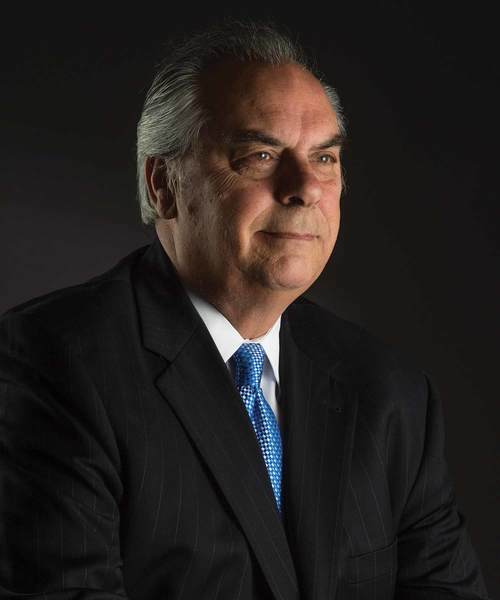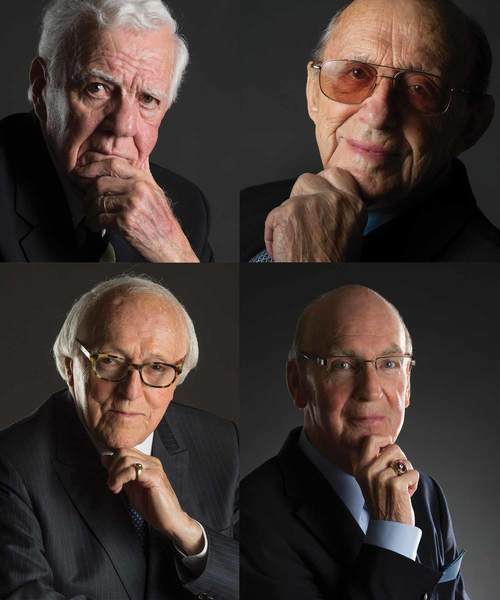
Richard Pierce
Some words to remember
Richard Pierce is not a coach, nor an athletics administrator at the University of Notre Dame.
He attends many Irish basketball games (both men’s and women’s) and some football games (lots of family requests for those tickets) and has a few student-athletes in his history classes most semesters.
He’s not sure if describing himself as a fan would be accurate. He thinks “worried interested bystander” is a better tag because he’s concerned any time a student-athlete suffers an injury.
He has never delivered any stirring words prior to a Notre Dame athletics contest, and he doesn’t think he belongs in the Knute Rockne category when it comes to motivation.
Still, the remarks Pierce offers annually to Notre Dame freshman student-athletes and their parents during first-year orientation may be as memorable and accurate as anything they hear from anyone at the University during their four years on campus.
Along the way, unwarranted calamity, whether it is an injury or a lost computer file, will befall you. Press on.
An associate professor of history, Pierce recalls being invited by Jannifer Crittendon, the first administrator assigned to the student welfare and development component for Irish athletics, to speak at the Saturday morning session in McKenna Hall on the weekend before classes began.
“Jannifer asked me to talk to the students about what they might expect from their professors and how they should prepare,” says Pierce.
“I did that version for a few years, but I realized that I offered nothing to the parents who were sitting in the audience subtly nudging their students. I feared I sounded like a parent or was offering comments that they had offered previously. Certainly we had first-generation students that might not have received that message from a parent, but I thought the talk was limiting nonetheless.”
So Pierce, a former member of the University’s Faculty Board on Athletics, edited his remarks and created a second version that offered something to the parents as well.
You may return home from practice more tired than you have ever been and yet more work remains. Press on.
“It’s a little frightening to think of the ‘speech’ as a Notre Dame institution. That idea gave me pause for reflection,” says Pierce.
“I do execute the speech without notes or teleprompter and it scares the hell out of me every time. When you’re a one-hit wonder, you shouldn’t forget the words to the song. So I step on stage every year with one thought: don’t forget the words.”
Your body will ache and your mind will be fatigued and your non-athlete fellow students will be goofing off with X-Box or PlayStation. She may be updating her fantasy wedding on Pinterest. You will think it is all unfair, and it is, but press on.
“I’m genuinely surprised at how the talk has resonated. I receive phone calls, handwritten cards and email every year from parents commenting on the speech. I must have emailed the speech to a parent a dozen times. One of the parents from the women’s lacrosse team knitted or crocheted a plaque of sorts that she framed and gave to the team saying, ‘Press On.’”
Those in the media who do not know you or of your challenges may unjustly hold up your mistakes or exhibit your grief for the nation’s amusement. Shame on them, shame on them, but for you, press on.
“Most surprising, I get a student or two every year that tells me that they took one of my classes because their parent told them to do so before they graduated. Dale Cable, the father of (Irish women’s basketball player) Madison Cable, was the most recent example,” says Pierce.
In crisis both great and small, in challenges both real and imagined, never give up, never give in. Press on.
“Every once in a while I’ll pass someone walking on campus and they’ll just say, ‘Press on.’”
This University holds to her degrees as securely as a mother holds her infant. As tightly as your mother once held you. To get your degree, you will have to take it. And you will. But you will take it not as a thief in the night who uses guile and the cover of darkness to exercise his craft, but as men and women who stood before their challenges and did not fear the specter.
“After the speech (the event now is held in the DeBartolo Performing Arts Center) parents will come up to me to congratulate me. It’s sometimes difficult because one or the other parent gets emotional. The best was a father who said he had struggled with what to say to his son as he began college, but that I had done it for him and he was grateful.
“Pat Eilers (former Irish football player and now chair of the Advisory Council for the Student-Athlete) has probably propelled the talk because he referred to it in a story written about him.
“Anyway, the speech has a life of its own. Sometimes, when I mess up or delete a phrase or example for time purposes, one of the coaches will come up to me to let me know I’d altered the text. Tim Welsh (former Irish swimming head coach), I suspect, could do the talk in my stead,” Pierce says.
He begins his remarks by suggesting that he has never accepted the conventional wisdom that athletes and students are mutually exclusive. Pierce talks about former Pittsburgh basketball All-American Sam Clancy (who went on to play pro football for three NFL teams), whose mother learned that her son’s grades had slipped and walked on to the basketball practice court at Pittsburgh and proceeded to beat her 6-8 son with a broomstick.
“I don’t advise that any parents here today do such a thing, but these are your children,” Pierce tells the group.
“The base success at athletics and academics requires the same qualities. It is not intelligence. The world is well stocked with intelligent fools. It is not talent. Each of us knows individuals who have wasted or abused their talent. The qualities that breed academic and athletic success are persistence and determination. They are omnipotent.”
A member of the Notre Dame faculty since 1996, Pierce specializes in African American, urban and civil rights history, examining social and political protest in urban environments. He was appointed as the inaugural chair of the Department of Africana Studies at Notre Dame in 2005. He earned his doctorate at Indiana University and in recent years has been awarded multiple fellowship and academic appointments.
Currently, Pierce is researching the extent to which black capitalism was a component of Black Power. The project is untitled, but it returns Pierce to his academic roots of Indianapolis (the source for his first book, “Polite Protest”) and examines the creation of the Indiana Black Expo as a visible example of Black Power.
“As strange as it may seem, your coaches and professors also share qualities. Each will require that you produce at a faster pace, with a greater quantity, and at a higher level of quality than you ever have in your life,” Pierce adds.
“Your coaches will demand that you respect the sport, and your professors in subtle and not so subtle ways will remind you that you must not disrespect their academic discipline. While you may be rightfully wary of the challenge before you, you must not fear the specter. You must not fear the specter, for you have been admitted to this University because you deserve to be here.
“At this University, there is no back door, side door, or special door reserved for athletes. At this University there is only one entryway, and it is through that portal you will walk next week when you enter your first class. I know some of you have taken summer classes—but the summer … is not the fall. But it will be through that very same door that you will stride four years from now. At that time, having completed your course of study, the president and faculty will stand to say that you are deserving of all the rights and privileges of a graduate of the University of Notre Dame.
“You will know that you have earned the claim. Your talent and intelligence may get you to the door, but your determination and persistence will get you through. And when you take your degree, you will be welcomed by a host of alumni who will know that you have walked the hard path.”
Then Pierce finishes with some words for the parents: “I congratulate the parents here today on raising such upstanding young men and women. You have fulfilled one of God’s most noble callings and are deserving of your children’s applause. Well done.
“Nonetheless, as a fellow parent and with great humility, I have the temerity to say that as fine as your son or daughter is today, and with your continued help, we will make them better.
“This is the University of Notre Dame and that is what we do. We make people better. I will see you on campus.”
Press on, indeed.

